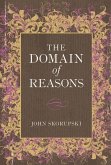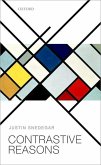In "Reasons and the Good", Roger Crisp answers some of the oldest questions in moral philosophy. Claiming that a fundamental issue in normative ethics is what ultimate reasons for action we might have, he argues that the best statements of such reasons will not employ moral concepts. He investigates and explains the nature of reasons themselves; his account of how we come to know them combines an intuitionist epistemology with elements of Pyrrhonist scepticism. He defends a hedonistic theory of well-being and an account of practical reason according to which we can give some, though not overriding, priority to our own good over that of others. The book develops original lines of argument within a framework of some traditional but currently less popular views.
In Reasons and the Good Roger Crisp answers some of the oldest questions in moral philosophy. Fundamental to ethics, he claims, is the idea of ultimate reasons for action; and he argues controversially that these reasons don't depend on moral concepts. He investigates the nature of reasons themselves, and how we come to know them. He defends a hedonistic theory of well-being and an account of practical reason according to which we can give some, though not overriding, priority to our own good over that of others.
Hinweis: Dieser Artikel kann nur an eine deutsche Lieferadresse ausgeliefert werden.
In Reasons and the Good Roger Crisp answers some of the oldest questions in moral philosophy. Fundamental to ethics, he claims, is the idea of ultimate reasons for action; and he argues controversially that these reasons don't depend on moral concepts. He investigates the nature of reasons themselves, and how we come to know them. He defends a hedonistic theory of well-being and an account of practical reason according to which we can give some, though not overriding, priority to our own good over that of others.
Hinweis: Dieser Artikel kann nur an eine deutsche Lieferadresse ausgeliefert werden.









